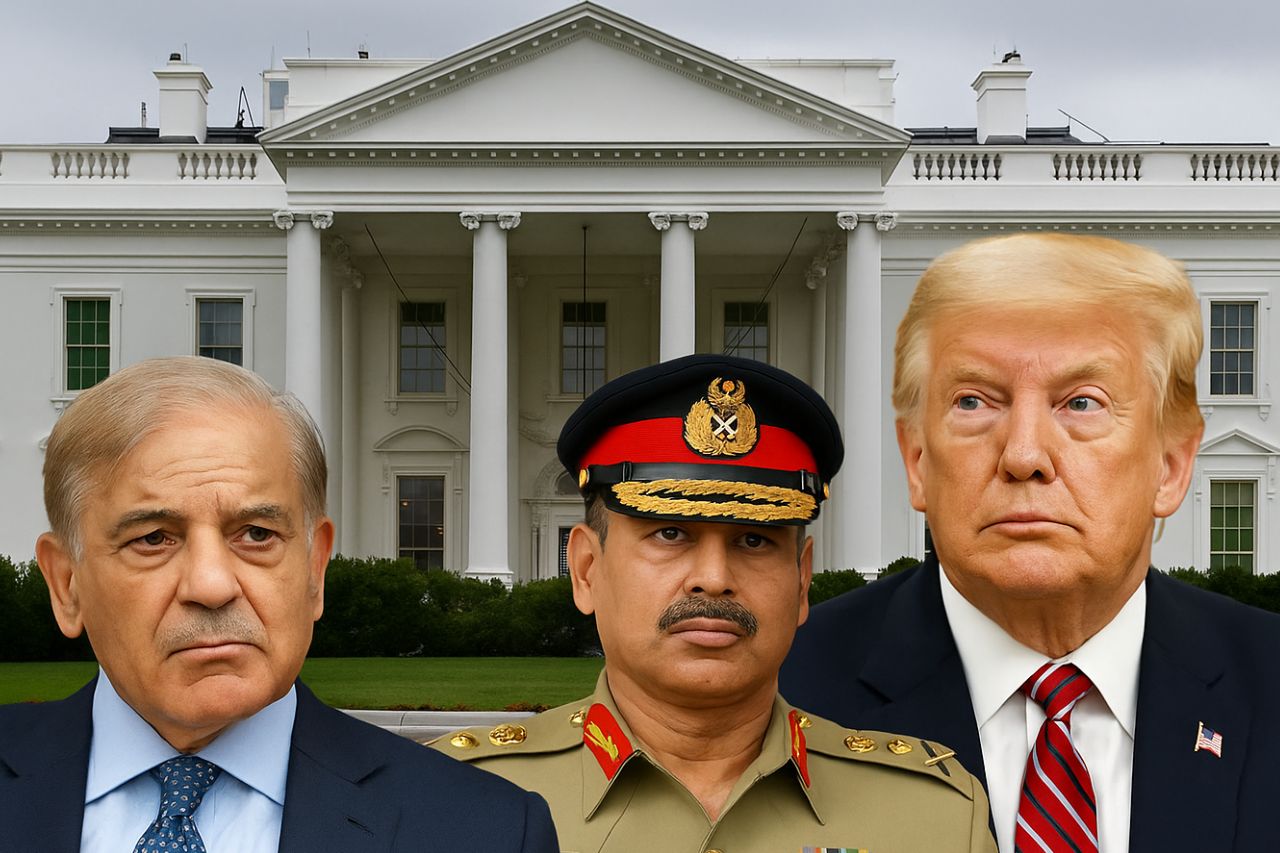Pakistan Prime Minister Shehbaz Sharif and Army Chief Field Marshal Asim Munir’s meeting with US President Donald Trump at the White House on September 26, 2025, drew attention not only for the optics but also for the claims made during the discussions.
The duo, according to diplomatic sources, was reportedly kept waiting before being ushered into the Oval Office, a detail that added intrigue to an already sensitive meeting held on the sidelines of the UN General Assembly.
During the talks, Prime Minister Sharif reiterated Pakistan’s longstanding narrative that Washington played a role in brokering a ceasefire with India earlier this year, in the aftermath of Operation Sindoor. The Indian military operation was launched following the April 22 Pahalgam terror attack that killed 26 people.
While India has consistently denied any US involvement, Sharif publicly credited Trump for what he described as “bold, courageous and decisive leadership” that “facilitated the ceasefire between Pakistan and India, thereby helping avert a major catastrophe in South Asia.”
The statement echoed Trump’s own claims at the UNGA earlier this week, where he said he prevented further escalation between the two nuclear-armed neighbours.
What did Pakistan’s Readout Say?
According to a readout from the Pakistan Prime Minister’s Office (PMO), Sharif hailed Trump as a “man of peace” engaged in sincere global conflict resolution efforts. He lauded Trump’s initiative to convene key Muslim world leaders in New York for discussions on ending the Gaza war and restoring peace in the Middle East.
Sharif also thanked the US President for the tariff deal concluded earlier this year and extended an invitation for US companies to invest in Pakistan’s agriculture, IT, energy, and mining sectors. The Pakistani leader emphasised strengthening security and intelligence cooperation and invited Trump for an official visit to Pakistan “at his convenience.”
Why did India deny Trump’s mediation claim?
India, however, has categorically rejected the narrative that Trump mediated the ceasefire. External Affairs Minister S. Jaishankar has repeatedly clarified that the understanding was reached after direct negotiations between the directors general of military operations (DGMO) of both nations.
Jaishankar recounted that he was present when US Secretary of State Marco Rubio informed Prime Minister Narendra Modi of an imminent Pakistani assault on May 9, 2025.
Modi, according to Jaishankar, responded firmly, and Indian forces retaliated swiftly when the attack materialised. By May 10, Pakistan’s DGMO reached out to his Indian counterpart, initiating ceasefire talks, without third-party intervention.
In Parliament, Modi himself rejected Trump’s version, stating, “No leader in the world asked India to stop military action.” He made clear that New Delhi’s decision-making during Operation Sindoor was sovereign and independent.
What’s the larger picture?
The White House meeting highlights the delicate balancing act in US-Pakistan ties and the competing narratives over the India-Pakistan ceasefire.
For Sharif, acknowledging Trump’s role served both diplomatic flattery and domestic signaling. For India, however, the firm denial reflects New Delhi’s longstanding policy of rejecting third-party mediation on its disputes with Pakistan.
As Trump eyes another high-profile foreign policy talking point and Islamabad seeks renewed strategic space in Washington, the question of “who brokered the ceasefire” remains contested, and politically charged in South Asia.
